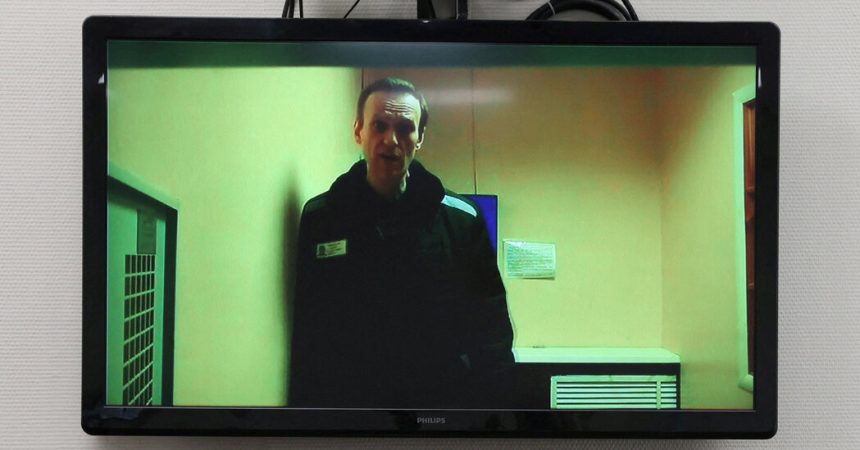A Russian court on Friday handed Aleksei A. Navalny, the jailed opposition leader, a new 19-year prison sentence on charges of supporting “extremism,” a ruling that came amid intensified suppression of dissent in Russia.
Mr. Navalny, whose anticorruption investigations criticizing the Kremlin drew popular support and infuriated Russia’s top leadership, was already serving a nine-year sentence in a maximum-security penal colony in east of Moscow.
Acquittals are extremely rare in Russian courts, especially against opposition figures. Mr. Navalny and his supporters had predicted a harsh sentence, especially given that the Kremlin in recent months has banned criticism of its war in Ukraine, stepped up its jailing of opposition voices and shuttered liberal news media outlets.
In the case decided on Friday, Mr. Navalny, 47, was charged with promoting terrorism, funding extremism and rehabilitating Nazism. Prosecutors had called for him to serve an additional 20 years in prison on top of his conviction in March on fraud charges, a case that rights groups said was politically motivated.
Once upon a time, a two-decade sentence for what is essentially dissent would have been seen as unusually harsh. But the ruling was the latest in a string of extreme judgments.
In April, Vladimir Kara-Murza, a dissident with Russian and British citizenship and a contributor to The Washington Post, was sentenced to 25 years in prison for treason, spreading “fake” information and participating in an “undesirable organization.” Mr. Kara-Murza lost an appeal of the ruling this week.
Mr. Navalny and Western rights groups have denounced the charges against him as an attempt to silence dissent against President Vladimir V. Putin.
“The sentence will be a long one,” Mr. Navalny said in a statement released by his organization on the Telegram app on Thursday before the verdict. “Think about why such a demonstratively huge sentence is needed. Its main purpose is to intimidate. You, not me. I will even say this: you personally, reading these lines,” he added.
The latest charges against Mr. Navalny were laid out in Moscow’s district court in late July, and the trial was conducted in closed-door hearings at the penal colony where he is being held. His parents tried to attend the proceedings but were denied entry, according to Mr. Navalny’s organization, which said that his parents have not seen their son for over a year.
Mr. Navalny nearly died in 2020 after being poisoned with a military-grade nerve agent, an episode that he and Western officials have described as an assassination attempt by the Kremlin. The Russian government has denied involvement.
After receiving medical treatment in Germany, he returned the following year to Russia, where waiting security forces detained him.
His group, the Anti-Corruption Foundation, was subsequently outlawed — declared an “extremist” outfit — and the Russian authorities began to crack down even more severely on its activities.
Two of Mr. Navalny’s associates were sentenced in mid-July to prison terms of seven and a half years and two and a half years for participating in the organization. At least 15 activists who worked with Mr. Navalny face similar charges, according to his spokeswoman, Kira Yarmysh.
Many members have gone into exile, from where the group has continued its work, publishing investigations into high-ranking Russian officials, including Defense Minister Sergei K. Shoigu and Yevgeny V. Prigozhin, the founder of the Wagner mercenary group.









